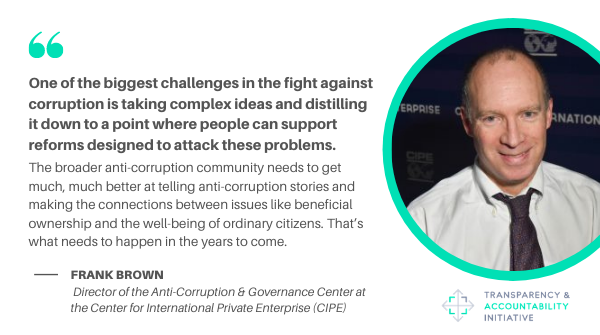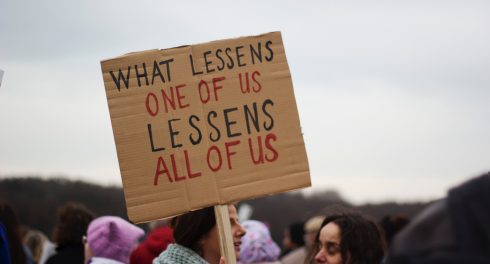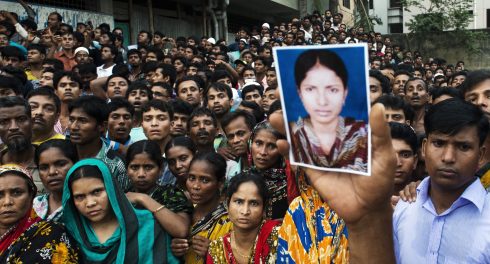Highlights
- Where has all the trust gone?
- The champagne still flows for some
- COVID corrupting more than our health
- Norms vs laws
- Structural weakness
- Philanthropic belief
- TAI Spotlight: E-procurement and COVID-19 recovery
Where has all the trust gone?

As the new year picks up pace, it’s the signal for release of updated global indices reflecting 2020 trends.
First up, the latest edition of the Edelman Trust Barometer report. It is sobering reading as its “Information Bankruptcy” heading suggests. Trust in all information sources is down. Intrigued that business more trusted than government in two-thirds of surveyed countries and that 68% respondents think CEOs should step in to solve societal problems governments aren’t fixing (and should also hold themselves accountable to the public, not just shareholders.) For more on private sector, roles see TAI Spotlight below.
Eliot Higgins, founder of “people’s intelligence agency” Bellingcat didn’t need to read the Trust Barometer to declare we are “on the precipice of the misinformation age.” Check out his interview in the Financial Times, including advice to activists to be very careful of leaving any digital footprint.
On a more positive media note, interested that the Financial Times editorial board have become notable champions of transparency and accountability of late – arguing strongly for the need for both, for example when highlighting corruption in Brazil’s government spending and the lack of electoral integrity in Uganda.
The champagne still flows for some
No in-person Davos schmoozing this year, but Oxfam still have some hard-hitting statistics for the global elites. Spoiler alert – billionaires are benefiting; inequality is spiraling. One potential response – a windfall tax on those who’ve seen their wealth spiral. Perhaps some ballast to the case from Pope Francis, who reminds all that tax evasion is sinful. Giulia Mascagni and Mick Moore note the importance of transparency and fairness in tax systems – not least for fostering public trust. Tax systems that are “unfair, exclusionary and opaque are likely to be major obstacles to the construction of accountable, transparent and democratic governance.” Agreed.
What else to rebuild trust beyond a tax rethink? Nadine Smith at the Centre for Public Impact in the U.K. urges central and local government listen to those seldom heard as the pandemic continues. Jessica Musila says we might learn, too, from Open Government Partnership processes. In Kenya, efforts to redefine civil society relations with government highlighted the opportunity for targeted funder support to mitigate local resource gaps and make good on commitments.
Sticking with a focus on active listening, Nicole Zerillo urges nonprofits to work on “community building” in order to effectively collaborate and partner with their communities. For their part funders can foster “constituent engagement” by supporting peer groups as they lead their own change and work collectively to advance their lives.
What about meaningful engagement in the digital realm? Read how technology enables AI-driven ‘social listening’ as a tool to help empower online communities, in turn affecting how governments view public perception.
COVID corrupting more than our health

Photo Credit: CHR Michelsen Institute
Our next featured index release is the stalwart, Transparency Corruption Perceptions Index. Little change at top or bottom but a reminder that even top performers have some thorny corruption problems, plus a welcome highlighting of how corruption undermines fair, efficient, and equitable response and recovery from COVID-19 pandemic. Seems that countries with higher levels of corruption and lower scores on the Index are least prepared to deal with a global health crisis.
Joe Powell picks up on the Russian palace controversy and Trump’s very final act as President to reflect on why the new US Administration must tackle corruption both at home and abroad. Michael J. Kavanagh makes a similar point drawing on the case of the license issued to Israeli mining tycoon, Dan Gertler in the final days of the Trump administration despite alleged corruption and reported intense lobbying effort in the Democratic Republic of Congo.
Last week, we referenced a Swiss money-laundering investigation implicating the Lebanese central bank – this week, The Economist digs into another Swiss investigation in Russia but suggests that overly-cozy relations between Swiss and Russian authorities is undermining its credibility.
A new paper from RUSI highlights the national security threats that stem from serious impacts of fraud in the UK, while Omidyar Network is experimenting how to tackle keeping institutions updated on ways to mitigate fraud in an age where technology continues to change and progress.
Fraud has risen fast amid the COVID context – rushed out government schemes often have weaknesses all too easy to exploit. Of course, fraud can even be outweighed by incompetence. The US government watchdog finds that the White House donated 8700 ventilators to other countries, but officials don’t know where many ended up or the basis for the allocation decisions. To show what can be done right, Chile offers some inspiration with an example of open contracting that cut the cost of medicines.
TPA Full Disclosure: CIPE’s Frank Brown digs into the mechanics of corruption

For 20 years, Frank Brown worked as a journalist – the last 11 years was in in Russia, where he witnessed the tremendous human cost of corruption and how people were far more motivated by the prospects of improving their lives than they were to ethics. Today, Frank leads the Anti-Corruption & Governance Center at the Center for International Private Enterprise (CIPE). We discussed his motivation for switching careers, market drivers to change corrupt leaders behavior, how ordinary citizens can join the fight against corruption, and what practitioners can do to succeed in the anti-corruption field.
Norms vs laws
Another reason that corruption might persist? Sticky social norms. Cheyanne Scharbatke-Church uses participatory systems analysis in Uganda to highlight personal and professional risks for civil servants charged with implementing anti-corruption laws that run counter to existing social norms.
Of course, often it is civil society pushing to challenge laws. A case in point, the push to force Pakistan’s Attorney General to review November’s controversial internet censorship rules after facing legal action. For more on strategic litigation approaches and resources see TAI’s brief. Meanwhile, the Digital Freedom Fund has an updated grantmaking strategy that will support litigation and pre-litigation research projects and enable long term projects over multiple court instances.
The UK Governance and Social Development Resource Centre continues to produce weekly evidence summaries on conflict and governance issues to inform UK responses to the pandemic – a reminder of the more customized TAI COVID-19 Monitor editions we released last year. Want more analysis on democratic trends specifically, he European Partnership for Democracy and Carnegie Europe launched the European Democracy Hub.
What about the effectiveness of civil society recipients of funding? Check out the new M&E Universe papers on the monitoring and evaluation of capacity strengthening with small groups and large cohorts of organizations.
Structural weakness
It is still unclear if the Tokyo Olympics will go ahead this summer or be postponed again. The venues lie waiting. Many are already questioning the cost of hosting. Those costs typically are exacerbated by graft.
Engineers Against Poverty reminds us corruption is not limited to government institutions but also common in mega sporting events. Ramifications of corruption in mega sport infrastructure include major cost overruns (Brazil World Cup stadium costs increased by 450%) and poor-quality construction resulting in death and injury.
Staying with construction, CoST Infrastructure Transparency Initiative have a new guidance note on improving infrastructure transparency, participation, and accountability during a crisis – useful for decision-makers working quickly during the pandemic recovery process.
For another infrastructure-heavy sector – extractive industries – Suneeta Kaimal outlines an agenda for 2021 including addressing fossil fuel dependency, tackling resource backed debt, and defending governance, environmental, and social standards.
Philanthropic belief
Music to TAI ears as the Human Rights Funders Network announced a new audience research project to better understand the thoughts, beliefs, wants of those in philanthropy as a basis for connection and collaboration. Have your voice heard in this 5-minute survey to further assist this project.
British diplomats have been instructed to find at least 50% cuts in UK overseas aid in the next six weeks in advance of the next financial year. Meanwhile, China (not short of money) has a new 2021 white paper highlights a new vision for international development cooperation. We were intrigued to note first time inclusion of “improving governance”, albeit characterised in a technical way as supporting partner countries in public administration, policymaking, and capacity building
Finally, wondering how you’ll ever handle the return to the office? Turn to standup to help get ready.
For those restrained to the virtual world for the foreseeable future, keep in mind that inclusion should be a topic within the workspace and during virtual meetings to ensure everyone’s voice is heard.
TAI Spotlight: E-procurement and COVID-19 recovery
E-procurement and COVID-19 recovery | Transparency and Accountability Initiative
As cyberspace replaces public space due to COVID-19, the growing trend of adapting state functioning to the digital landscape has become a top priority. Elise Blackburn highlights opportunities for funders support of e-procurement and why this needs to be prioritized to build back better.
Lessons from a COVID year | Chandler Foundation
Founder and chairman of Chandler Foundation, and Chandler Institute of Governance, Richard Chandler, says amid the political turmoil and shortcomings of global governments, the private sector has, in many areas, risen to the occasion.
The urgency of this social moment | Ford Foundation
Executive Vice President Hilary Pennington kicked off a new LinkedIn series, Social Justice Leaders #OnWhatMatters, a set of conversations with non-profit vanguards, who inspire her and champion social justice. Listen to her interview with Eric Ward and Tim Delaney.
Securing the future of U.S. elections | Hewlett Foundation
U.S. Democracy Program Officer Vanessa Tucker looks back at the 2020 election and identifies lessons that can be used to ensure trust in the democratic process in 2021 and the years to come.
Providing effective legal services remotely during COVID-19 | Open Society Foundations
Open Society Justice Initiative has published a new guide on how to provide effective legal services remotely—a challenge that has been exacerbated by the COVID-19 pandemic and social distancing measures.
Job Listing
- Policy consultant at Accountability Counsel – Ongoing
- Organized Crime and Grand Corruption Analyst, C4AD – Ongoing
- Senior Policy Advisor for Civic Space at Oxfam America – Ongoing
- Job postings at Hewlett Foundation – Ongoing
- Job postings at MacArthur Foundation – Ongoing
- Job postings at Open Society Foundations – Ongoing
- Job postings at Luminate – Ongoing
- Job postings at Ford Foundation – Ongoing
Call/ Opportunities
- I-RAnT! Nigeria Influencing Grant – February 7, 2021
- European Commission public consultation on sustainable corporate governance initiative – February 8, 2021.
- Soros Justice Fellowship –February 17, 2021
- Call for submissions to SSIR Series: Social change in an era of extreme polarization – Last Thursday of every month until early 2021
- USAID’s Development Innovation Ventures (DIV) grant funding – Ongoing
- BetterTogether Challenge for innovators – Ongoing
- Call for research proposals Tax and civil society – No Deadline
- Free Digital Security Training – Ongoing
- Open Road Alliance Charitable Grant and Loan to organizations responding directly to COVID-19 – Ongoing
- Pulitzer Center Coronavirus news collaboration challenge – Applications will be reviewed on a first-come, rolling basis
- Call for proposals: Informality, tax, and the state – Proposals accepted on a rolling basis
Calendar
- A framework for inclusive capitalism: A new compact among business government, and American workers – February 3, 2021 (11:00 am – 12:30 pm ET)
- Mining Data in Action: Building Trust and Transparency – February 15, 2021
- Democracy, civil society, and digital technology – February 17-18, 2021
- 2021 Data on Purpose conference – February 17-18, 2021
- Data on Purpose: Democracy, Civil Society, and Technology: February 17-18, 2021
- World Bank Civil Society Policy Forum (Virtual) – March 22-April 11, 2021
- Open Gov Week (Virtual) – May 17-21, 2021


